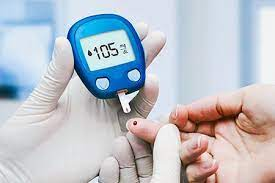If diabetic patients are unable to do morning or evening walks, exercise, or yoga, they mostly try to control their sugar level by relying on medicines. When diabetes is out of control, patients take heavy doses of medicines or if the sugar level is slightly high, they take low-dose medicines. But like other medicines, can there be side effects of continuously taking diabetes medicines? In this matter, we talked to Dr. Amitesh Aggarwal, Professor of Medicine Department of the University College of Medical Sciences and GTB Hospital and he told us what the patients should do.
1- Is there any harm in taking diabetes medicines every day?

Taking medicine daily to control diabetes is generally safe and necessary. However, some potential concerns need to be aware of.
1. Hypoglycemia (low blood sugar): Some diabetes medicines, especially insulin and some other medicines, can lower the blood sugar level. If you take these medications and do not balance them with food intake or physical activity, you may develop hypoglycemia, which can be dangerous. It is important to monitor your blood sugar regularly.
2. Side effects of medicine: Like all medicines, diabetes medicines can also have side effects. These side effects may vary depending on the type of medicine you are taking. Common side effects may include gastrointestinal problems, weight gain, or allergic reactions.
3. Drug Interaction: If you take multiple medicines, there are chances of drug interactions. Some drugs may interact with diabetes medications and affect their effectiveness or safety.
2- Can a diabetic patient eat seasonal fruits and is there a restriction on any vegetables?

Yes, diabetics can eat seasonal fruits, but in limited quantities.
Fruits that diabetic patients should not eat: Fruit juice, sugarcane juice, banana, mango, grapes, sapota, dates, potato, colocasia, sweet potato, jimikand,beetroot,
Good foods: Raw vegetables, such as carrots, radishes, onions, tomatoes, lettuce, cucumbers,










